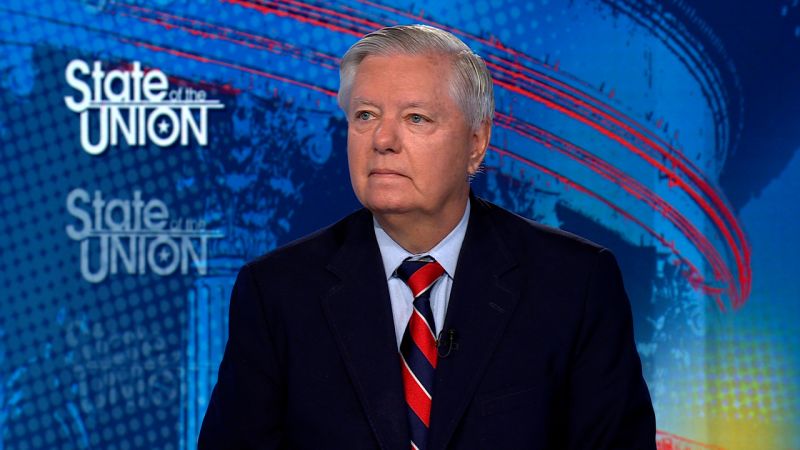Senator Lindsey Graham appeared on CNN’s “State of the Union” to discuss former President Donald Trump’s recent comments regarding Democratic presidential nominee Kamala Harris. Indicating that he disagreed with Trump’s characterization of Harris, Graham stated, “I like Kamala Harris. I have found her to be aggressive, very smart, good lawyer [and] somebody you can work with.” However, Graham went on to criticize Harris for her policies, describing them as “socialist” and “crazy.” This distinction between Harris as a person and her political beliefs underscores Graham’s belief that it is important to separate personal opinions from policy discussions.
Graham’s comments reflect the ongoing political discourse surrounding the upcoming presidential election and the different approaches that politicians take when discussing their opponents. By acknowledging Harris’ intelligence and qualities as a lawyer, Graham demonstrates a level of respect for his political rival while also using the opportunity to critique her policies. This illustrates the complexities of political rhetoric, where individuals may seek to balance personal opinions with the need to present their views on key policy issues. In the case of Graham, his comments highlight his willingness to engage in a nuanced discussion about Harris and her policy proposals.
Graham’s characterization of Harris’ policies as “socialist” and “crazy” also speaks to the broader ideological divide in American politics. As a Republican senator, Graham’s criticism of Harris aligns with his party’s stance on issues such as healthcare, taxation, and government spending. By labeling Harris’ policies in this way, Graham positions himself as a defender of conservative values and a vocal opponent of progressive initiatives. This framing of the debate reflects the larger political dynamics at play in the United States, where politicians often use inflammatory language to draw distinctions between themselves and their opponents.
The discussion between Graham and Tapper highlights the challenges of engaging in civil political discourse, particularly in a highly polarized environment. While Graham expresses his personal admiration for Harris, he does not hesitate to critique her policies, using strong language to convey his disapproval. This approach may be seen as a reflection of the current state of American politics, where partisan divisions have made it difficult for politicians to find common ground on key issues. Despite their differences, Graham’s willingness to engage in a discussion with Tapper demonstrates a commitment to open dialogue, even when viewpoints may diverge.
Overall, Graham’s comments on Harris serve as a reflection of the broader political landscape in the United States, where politicians must navigate a complex web of personal opinions, policy discussions, and ideological debates. By acknowledging Harris’ personal qualities while critiquing her policies, Graham presents a balanced view of his opponent, highlighting the nuances of political discourse. This discussion also underscores the challenges of engaging in civil political dialogue in a polarized environment, where individuals must navigate competing beliefs and values. In this context, Graham’s comments on Harris offer a glimpse into the complexities of political rhetoric and the ways in which politicians seek to communicate their views to the public.


